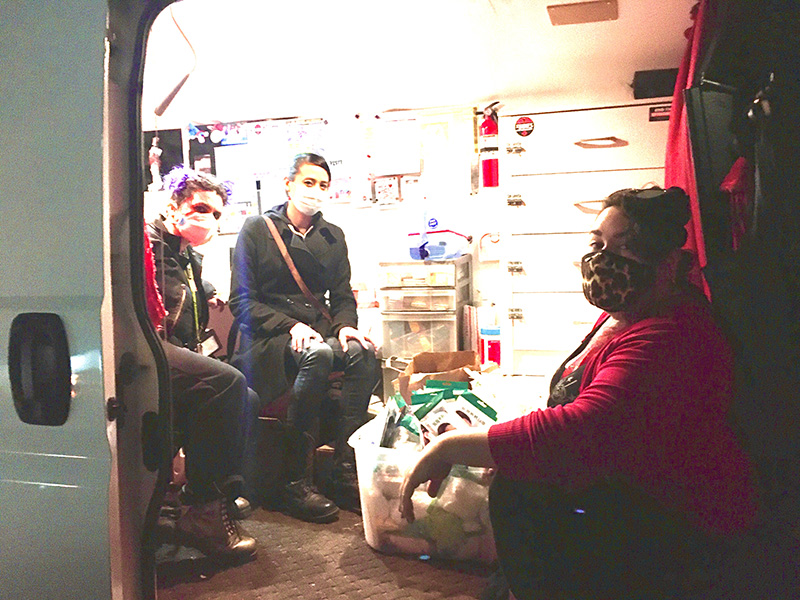Many sex workers are barred from accessing protections and resources meant to help workers affected by the coronavirus pandemic — federal small business loans, for example, specifically exclude those whose work is “of a prurient sexual nature” from eligibility. For some sex workers, business has simply evaporated. Others continue to work, and organizations like St. James Infirmary, a peer-run health and safety clinic for sex workers, are mobilizing harm-reduction efforts. Staff with the clinic are also distributing groceries and masks, and redoubling their efforts to help find housing for sex workers who need it, said Celestina Pearl, outreach manager for the clinic.
“I think the biggest need right now is money…But we’re also strategizing and trying to work in coalition with several other local organizations and also other organizations within the state of California, trying to get funding from the state for sex workers, and trying to be really careful and strategic about it…A lot of different kinds of sex work is illegal. And certainly all of it is very highly stigmatized.” — Celestina Pearl
A segment from our radio show, “Civic.” Listen daily at 8 a.m. and 6 p.m. on 102.5 FM in San Francisco.










